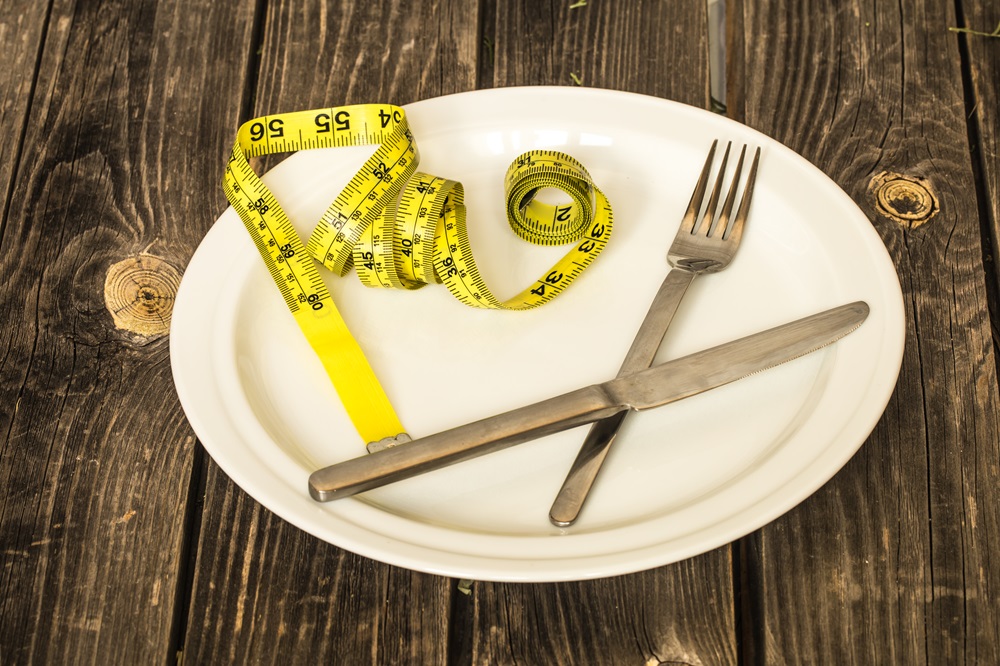One-Day Fasting – Effects, Rules, Risks

A one-day fasting is an unconventional and increasingly popular dietary approach. While fasting is often associated with extreme weight-loss methods, a 24-hour fast can offer several benefits, including improved well-being. But what exactly is a one-day fast? What are its pros and cons? Is it really worth trying?
Table of contents
One-day fasting - what is it?
Fasting is a term most commonly linked to weight loss and often sparks controversy. While it can lead to a reduction in body weight, it also carries potential risks, such as slowed metabolism. However, a one-day fasting is based on different principles. This short-term, 24-hour break from eating is usually used to relieve feelings of overeating or to support the body’s natural detoxification processes.
Also known as a 24-hour fast, it’s a dietary method that involves drastically reducing calorie intake for a full day. It’s a form of cleansing fast, during which a person deliberately refrains from consuming food for 24 hours.
A one-day fast can be practiced as a type of intermittent fasting or as an occasional stand-alone break from food intake.
One-day fasting - guidelines
There are several ways to approach a one-day fast depending on individual needs and preferences. The key rule is to cut calorie intake to a minimum by avoiding both solid and liquid foods that contain calories. However, staying properly hydrated is essential during a 24-hour fast.
It’s best to avoid intense physical activity while fasting, as it may overburden the body. The fast should ideally be used as a time for rest and recovery.
Importantly, a 24-hour fast should not be done too frequently. Some sources recommend limiting it to once every two weeks. Women should also avoid fasting during menstruation or pregnancy.
24-hour fast and coffee - what can you drink?
A 24-hour fast doesn’t mean giving up fluids – in fact, hydration becomes even more important. Plain still water should be your primary drink, but other calorie-free options are also allowed.
These include unsweetened herbal teas, black tea, and plain black coffee – without milk or sweeteners.
One-day fasting - how to start?
Before attempting a one-day fast, it’s important to prepare your body properly. This includes staying well hydrated and consuming nutrient-rich meals beforehand to ensure adequate intake of essential vitamins and minerals. Pay attention to electrolyte balance as well.
Avoid heavy, fatty meals and reduce sugar intake in the hours leading up to the fast.
Consulting a healthcare provider is also recommended to make sure a 24-hour fast is safe based on your health conditions.
It’s also helpful to prepare mentally and create a supportive environment.
When ending the fast, reintroduce food gradually. Your first meal should be small and easy to digest – something like a vegetable soup or a light juice can be a good option.
One-day fasting - effects and benefits
A single 24-hour fast won’t produce dramatic results, but it can help you feel lighter, especially after overeating or consuming rich, heavy foods. It may reduce strain on the digestive system and support recovery.
Some research suggests that regular one-day fasts may help regulate blood sugar levels and improve insulin sensitivity, which could be helpful for individuals with type 2 diabetes or insulin resistance.
A 24-hour fast may also support growth hormone regulation, potentially boosting physical and cognitive performance and enhancing metabolic health.
Other studies show it may have a positive impact on lipid levels, helping lower cholesterol and triglycerides. It might also promote the removal of metabolic waste and reduce inflammation.
One-day fasting - drawbacks and risks
Extended fasting can be harmful – but can even a single day without food negatively affect the body?
Research shows that a 24-hour fast may cause temporary fatigue, hunger, headaches, dizziness, irritability, or low mood.
Since fasting weakens the body and limits your ability to exercise, it may disrupt workout routines for people who train regularly.
For those prone to disordered eating, one-day fasts could increase the risk of unhealthy eating patterns. Practicing it too often can lead to nutritional deficiencies and potentially even malnutrition.
After a fast, some people may experience extreme hunger and overeat, resulting in a calorie surplus and possible weight gain.
Animal studies also suggest that frequent fasting could raise oxidative stress and negatively affect reproductive tissues, potentially impacting fertility.
One-day fast - contraindications
Although some studies show that occasional one-day fasting can be beneficial, it’s not suitable for everyone.
Always consult a doctor before trying it, especially if you have any health issues.
Fasting is not recommended for people with kidney disease, liver disorders, or heart conditions. It should also be avoided by pregnant women, those menstruating, and older adults.
Bibliography:
- https://pubmed.ncbi.nlm.nih.gov/31288457/
- https://pubmed.ncbi.nlm.nih.gov/23408502/
- https://pubmed.ncbi.nlm.nih.gov/33826120/
- https://www.atherosclerosis-journal.com/article/S0021-9150(22)01130-3/fulltext
- https://www.sciencedirect.com/science/article/abs/pii/S0939475312002578
- https://journals.viamedica.pl/forum_zaburzen_metabolicznych/article/view/57922/43951

